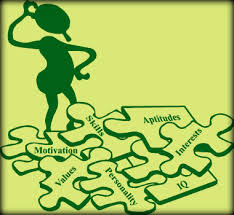
If the business owner does not have these character traits, the business is going to have a tough time making a profit.
The successful business owner is generally someone who seeks responsibility, pursues goals with vigor, shows initiative and persistence and has a constitution that is solid enough to take periods of stress and high workloads.
The source of these qualities is motivation. The business owner must be doing something that they really want to do. If there is no passion, there is no entrepreneurship. This means that business owners need to periodically and honestly assess themselves. If their business does not seem like fun any more, how can they change it? What are their other options, if business changes will not rekindle their enthusiasm?
Entrepreneurs are often driven by a deep psychological need to achieve. They need a positive attitude because people who are decisive and take risks have their fair share of failure.
Business people are often truly successful only on their second or third attempt. A positive attitude for the entrepreneur means the ability to try again after taking a big gamble and losing.
Attitude is also a key to an entrepreneur’s thinking ability. It’s a key to their creativity.
Entrepreneurs need to be able to analyze a problem in an aggressive way, to turn it around and come up with a positive outcome. A passive approach to a problem is not a creative one.
Many of the entrepreneur’s personal qualities are deep, if not innate. But there are many other qualities that can be learned or developed.
For example, not all entrepreneurs are born leaders or people managers. They may have the drive and the determination to succeed, but lack the skills to carry people with them.
There are many books and courses on leadership and even natural leaders may need skills development.
While entrepreneurs are commonly high-energy people who cope well with stress, nobody is indestructible. They may need guidance on basic things, such as the best diet and e
Entrepreneurs need to be organized, but that does not always come naturally, especially for a creative and driven person.
Good business people are generally good communicators. They’re helped by the fact that they’re doing something they love and enthusiasm is contagious.
But that does not mean entrepreneurs are gifted with high-level communication skills. That may be especially be the case if they work in technical areas. So there will be room for skills development there too. Attitude and drive may be innate, but skills and knowledge aren’t.
To learn more about these connections, check out these assessments:
Entrepreneurial Assessment -1
Entrepreneurial Assessment -2
Your Bottom Line: The mindset of the entrepreneur is essential as a predictive indicator of success. Studies have shown that only a small minority of individuals possess a strongly entrepreneurial mindset. It’s important to note that skills can be taught, but aptitude and attitude are innate. Above are links to a couple of assessments to download and take.
Copyright 2002, RAN ONE Inc. All rights reserved. Reprinted with permission from www.ranone.com.